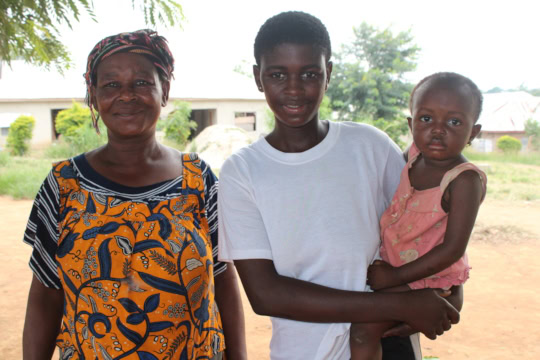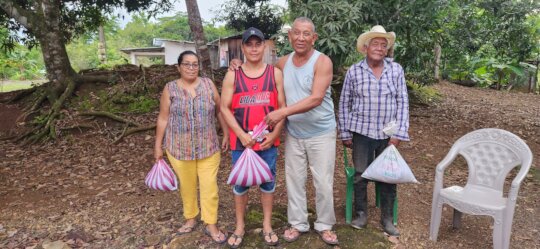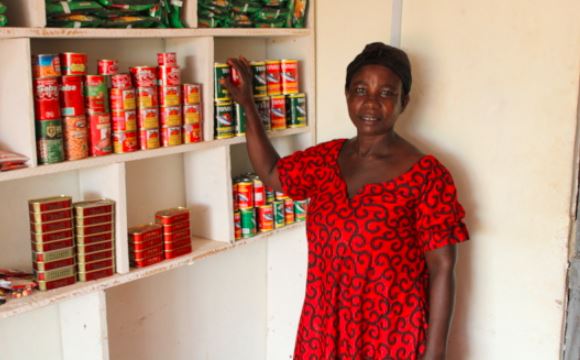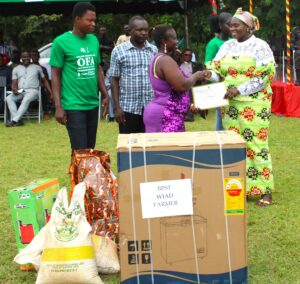23 Communities Gather to Discuss Clean Water

Quarterly Clean Water Meeting in Nueva Guinea
We love focusing on success stories, but installing clean water in rural communities is not all we do: we educate rural communities about how to maintain their systems and help them solve other local problems on an ongoing basis as well.
Last month, we gathered together 43 leaders from the southern region of Nicaragua in Nueva Guinea discuss their various initiatives to bring clean water to the local communities. The meeting was called for communities that have clean water systems already as well as those who are interested in installing a system, and was attended by community leaders and representatives from government offices and Self-Help International.
This was a quarterly meeting to remind everyone of what standards to follow to ensure their communities have clean water at all times – such as ensuring they always have chlorine tablets and replacing them regularly in order to ensure there is no time for bacteria growth, rather than trying to save money by going days or weeks between adding in fresh chlorine tablets. Other topics discussed included the commitment of the local leaders, rules and regulations, bacteriology test results from community water tanks, and personal opinions from community members on their local chlorinator system.
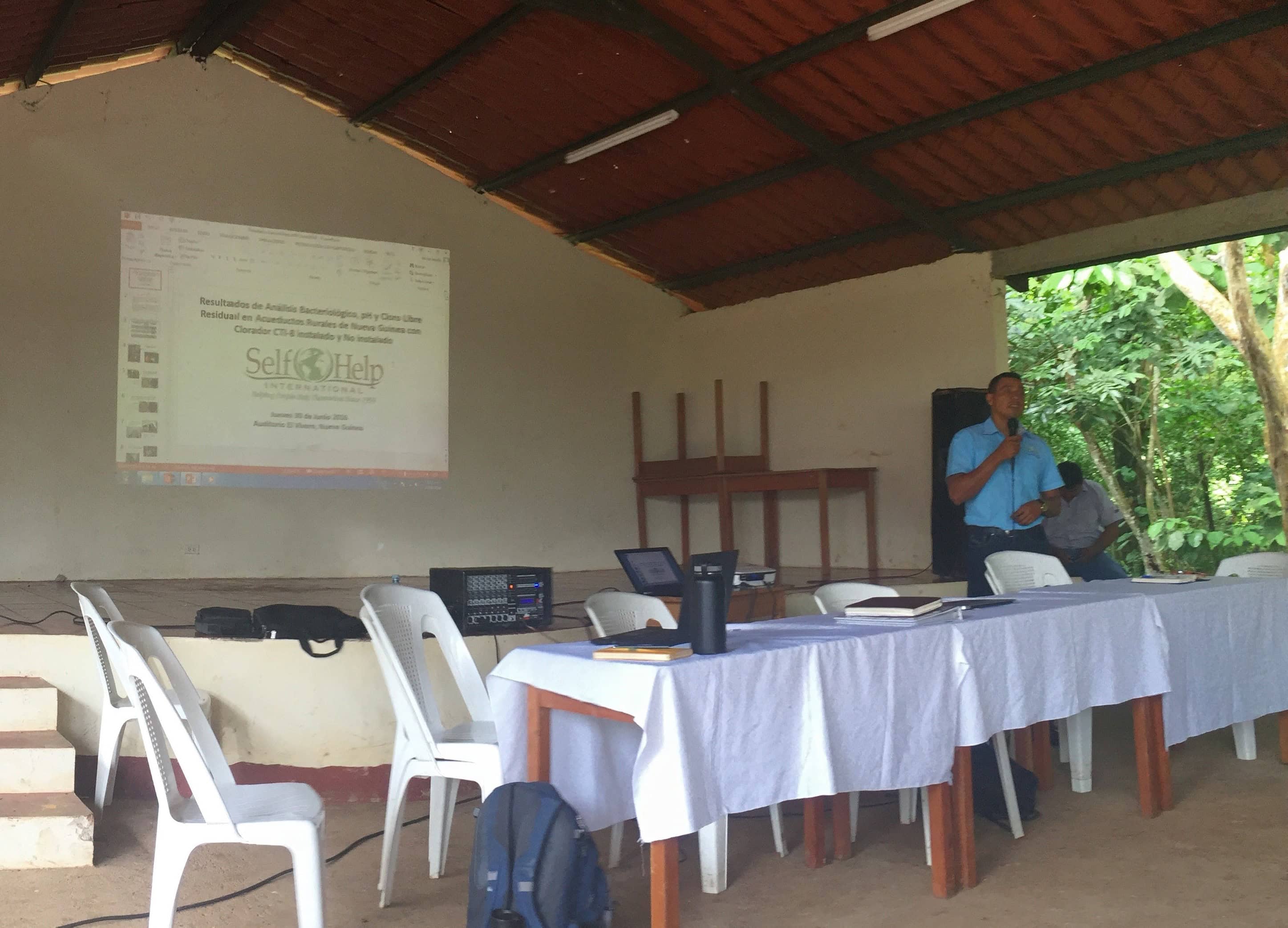
Orlando discussing water testing
Dozens of community members gathered early, eager to participate in the meeting as they found chairs to sit in, hovering around the projector screen. The communities that were represented at the meeting included:
- Serrano
- San Miguel
- Los Angeles
- San Antonio
- Buena Vista
- San Jose
- San Martin
- Verdún
- Managua
- Nueva Guinea
- Puerto Principe
- Cerro Bonito
- Los Pintos
- Dirrangea
- Son Antonia
- Loma Fresca
- Kurinwas
- San Carlos
- Nuevo León
- Los Piutes
- Esperanza
- Yolaina
- Ceiba
The first person to call the meeting to order was Manager Walberto Amador Orozco, the Director of Unidad Municipal de Agua y Saneamiento (UMAS). He welcomed and introduced Self-Help Country Director Jorge Campos Solis, Clean Water Program Officer Orlando Montiel Salas, Communications Intern Jacqueline Steinkamp, and Nicaragua Peace Corps Volunteer Michael Cano.
The second presenter was Country Director Jorge Campos Solis, who gave a heartfelt talk thanking everyone who made the trek out to Nueva Guinea and explaining the importance of maintaining clean water at all times year round. “We are clean water,” Campos said. “We are a community working together for the same purpose.” The group then stood together in unity; staring down at the tile below their feet, eyes closed, singing the national anthem and joining together in prayer.
After discussing roles, Javier Avilles Cruz, Director of FISE (Fondo de Inversion Social de Emergencia), explained to the group of participants the strength of the commitment of his organization in providing clean water. He shared with the group how they would maintain goals with their budget, their roles within the committee, the expectations each employee are held to, and their plan for the next five years.
Lunch was then served, and Self-Help Clean Water Program Officer Orlando delved into an in-depth analysis about the chlorinator testing process and the results of each community. He demonstrated through videos the three points in the chlorinator system that are required to accurately test the water (included in the process are distribution tanks and personal home visits). He then discussed the correct pH levels in parts per million that are acceptable, and the Units of Feces Tests.
Many participants were eager to learn more about their personal community diagnosis. Peace Corps Volunteer Michael Cano then used his engineering background to provide answers to the locals. The leaders did not leave until each community member received a satisfactory response.
Although community organizing is not easy, it is an important part of the work we do to serve these rural communities. It is because of follow up testing that we saw the need for ongoing communications with community leaders to remind them of best practices, answer questions, and give them a space to compare notes with one another. If we only installed a chlorination system and then left, communities would fall into bad practices and not derrive the full benefits of clean water. Thank you for your support of the ongoing education we provide to the rural communities to ensure that the benefits of clean water last for years to come.

